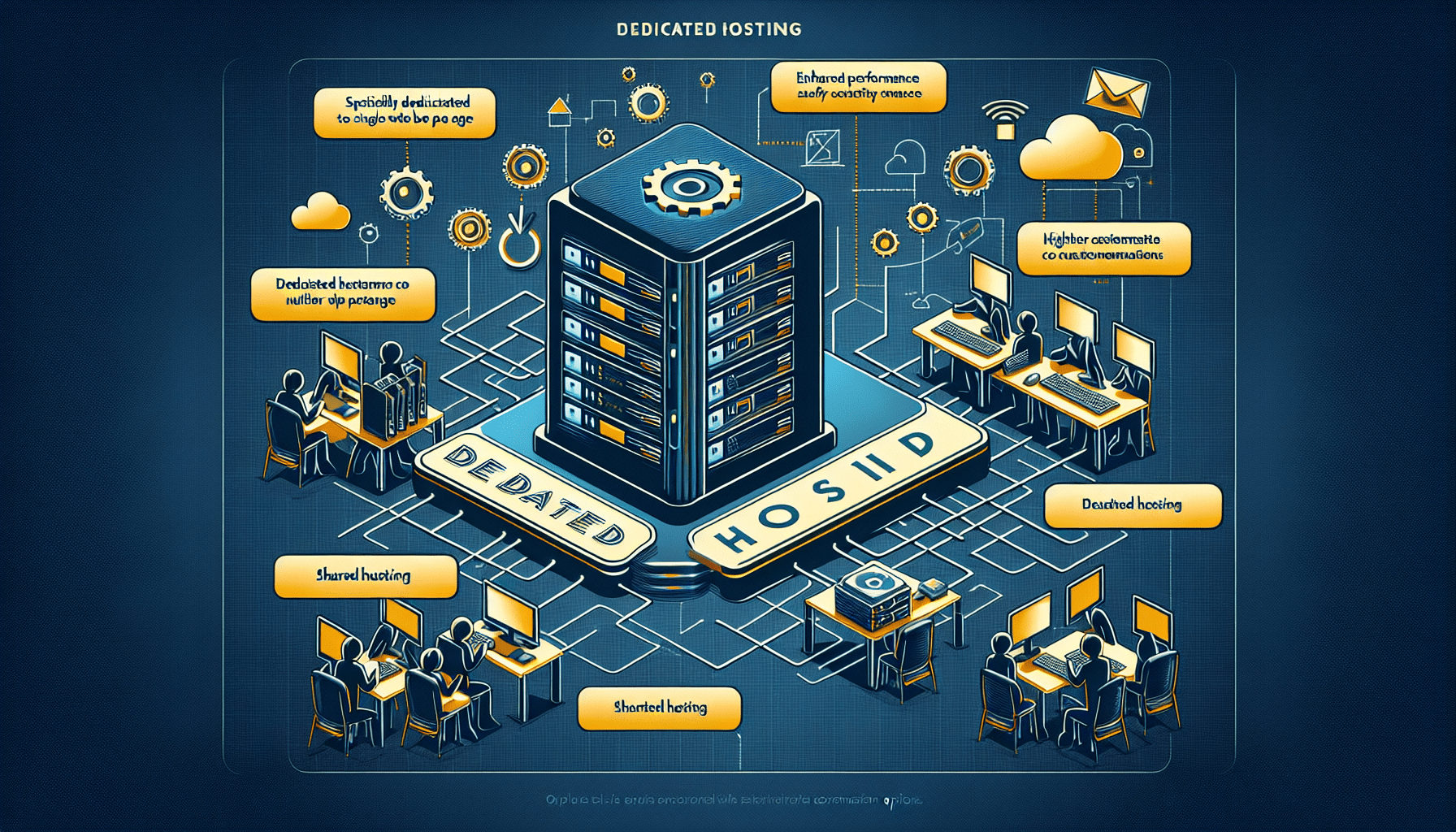Why Is Website Speed Important In Web Hosting?
You may be wondering why website speed is crucial when it comes to web hosting. The speed at which your website loads can significantly impact user experience, conversion rates, and even your search engine rankings. A slow website can frustrate visitors, leading to high bounce rates and lost revenue. Therefore, understanding the importance of website speed in web hosting is essential for the success of your online presence.

Impact on User Experience
When a user visits your website, they expect it to load quickly and smoothly. A slow-loading website can be frustrating for visitors, leading them to abandon your site in favor of a faster alternative. Research has shown that users are more likely to leave a website if it takes more than three seconds to load. Therefore, optimizing your website speed is critical for providing a positive user experience and keeping visitors engaged.
Conversion Rates
In addition to user experience, website speed can also have a significant impact on your conversion rates. Studies have shown that even a one-second delay in page load time can result in a 7% decrease in conversions. This means that if your website is slow, you could be losing out on potential customers and revenue. By improving your website speed, you can increase your conversion rates and maximize the effectiveness of your online marketing efforts.
Search Engine Rankings
Website speed is not only important for user experience and conversion rates but also for search engine optimization (SEO). Search engines like Google consider website speed as one of the ranking factors when determining where to place your site in search results. A faster website is more likely to rank higher in search results compared to a slow-loading one. By optimizing your website speed, you can improve your chances of ranking higher in search engine results pages and driving more organic traffic to your site.
Factors Affecting Website Speed
Understanding the factors that can affect your website speed is essential for optimizing your site and improving its performance. There are several primary factors that can impact how quickly your website loads, including:
Hosting Provider
The web hosting provider you choose plays a significant role in determining your website speed. Different hosting providers offer varying levels of performance, reliability, and speed. Shared hosting plans, for example, can lead to slower load times due to sharing resources with other websites. On the other hand, dedicated hosting or cloud hosting can offer faster speeds and better performance. When selecting a hosting provider, it is essential to consider the speed and performance features offered to ensure optimal website speed.
File Size and Compression
The size of your website files can also impact how quickly your site loads. Large images, videos, and other media files can slow down your website speed significantly. By optimizing your files and using compression techniques, you can reduce the file size without compromising quality. This can help improve your website speed and ensure that your site loads quickly for visitors.
Browser Caching
Browser caching is another factor that can affect website speed. When a user visits your website, their browser stores certain elements of your site, such as images and stylesheets, in a cache. This allows the browser to load the cached elements instead of downloading them again, which can speed up page load times. By enabling browser caching on your website, you can improve the speed at which your site loads and provide a better user experience for visitors.
Code Quality
The quality of your website code can also impact how quickly your site loads. Clean, well-structured code can help your website load faster and more efficiently. On the other hand, messy, bloated code can slow down your site and lead to longer load times. By optimizing your code and adhering to best practices, you can improve your website speed and ensure optimal performance for visitors.
Server Response Time
The server response time refers to the amount of time it takes for your server to respond to a request from a user’s browser. A slow server response time can lead to delays in loading your website and impact user experience. Factors that can affect server response time include server load, network traffic, and server configuration. By optimizing your server settings and monitoring server performance, you can reduce server response time and improve your website speed.

How to Improve Website Speed
Now that you understand the importance of website speed in web hosting and the factors that can affect it, you may be wondering how to improve your website speed. Here are some tips and strategies to help you optimize your site and enhance its performance:
Choose a Reliable Hosting Provider
Start by choosing a reliable web hosting provider that offers fast and efficient hosting services. Look for providers that offer high-speed servers, SSD storage, and reliable uptime guarantees. Consider upgrading to a dedicated server or cloud hosting if you need additional speed and performance for your website.
Optimize File Size and Compression
Optimize your website files by reducing the size of images, videos, and other media files. Use compression techniques such as gzip compression to reduce file size without sacrificing quality. This can help improve your website speed and ensure quick load times for visitors.
Enable Browser Caching
Enable browser caching on your website to allow browsers to store cached elements and speed up page load times. You can set expiration dates for cached elements and control how long they are stored in the browser cache. This can help reduce server load and improve website speed for returning visitors.
Minimize HTTP Requests
Minimize the number of HTTP requests required to load your website by reducing the number of elements on each page. Combine CSS and JavaScript files, optimize images, and use CSS sprites to reduce the number of individual requests. This can help speed up page load times and improve overall website speed.
Optimize Code Quality
Optimize your website code by following best practices and adhering to coding standards. Minimize unnecessary code, remove unused scripts, and optimize CSS and JavaScript files. Use tools like minification and concatenation to reduce file size and improve website speed.
Monitor Server Performance
Monitor your server performance regularly to ensure optimal speed and reliability. Use server monitoring tools to track server response time, uptime, and resource usage. Identify and address any performance issues to prevent slowdowns and downtime that can impact website speed.
By following these tips and strategies, you can improve your website speed, enhance user experience, and maximize the effectiveness of your online presence. Remember that website speed is a critical factor in web hosting and should be a top priority when optimizing your site for performance and success.










